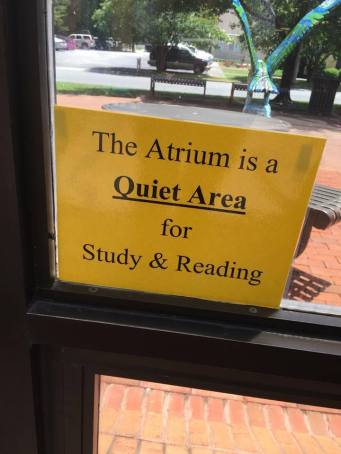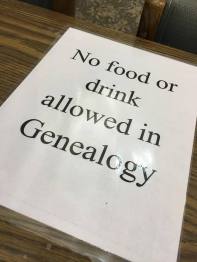It was at the top of the list for 2016 election rhetoric and whether you ended up on the winning side or the losing side, you’re probably still talking about it: fake news.
Fake news, by definition, is something that is not real – hence the term “fake.” The actual definition reads:
“News satire, also called fake news, is a type of parody presented in a format typical of mainstream journalism, and called a satire because of its content. News satire has been around almost as long as journalism itself, but it is particularly popular on the web, for example on websites like The Onion or Faking News, where it is relatively easy to mimic a credible news source and stories may achieve wide distribution from nearly any site. News satire relies heavily on irony and deadpan humor.”
But no one is slamming The Onion or Faking News or El Mundo Today. Most are slamming CNN, MSNBC, Fox News, CBS, ABC, The New York Times, the Associated Press, the Washington Post, or any other source that isn’t CSPAN or a personal blog where someone reaffirms the reader’s exact beliefs. This is happening because people are angry and, more often than not, their anger is justified. The mainstream media on both sides, in print and in television has a slant. These outlets race to be first instead of accurate. During crises, we get wrong information. The key word is “wrong,” not “fake.”
But slants and mistatements of facts do not mean something is “fake.” It isn’t fake news to say that 20 students on a school bus died when only 6 did. It’s wrong. Because of this misunderstanding, we’ve completely obliterated any opportunity to teach people who may not understand the difference or even how to assess media sources. In a matter of months, people have overused the term so much that the majority of people believe everything they see from a news outlet is fake.
Let’s take a look at an example that can be broken down without including partisan politics:
This past Wednesday it was announced that JonBenet Ramsey’s older brother is suing CBS News (and others) for $750 million after a series aired and insinuated that Burke may have had something to do with JonBenet’s death. Friday, his lawyer came out slamming CBS as “fake news” because of the series. Sound the buzzer because that. is. wrong. (For now, we’ll set aside the irony of perpetuating a story that is supposedly so defamatory, it’s worth $750 million)
FACTS: 1. JonBenet was killed. 2. Police have considered Burke a person of interest at some time or another. 3. 20 years later, law enforcement officials have no real leads on who actually committed the crime.
ASSUMPTIONS: The mother and father were ruled out, the ransom note is believed to be forged, and the brother was the only person left in the house “so it had to be Burke.” (Don’t lie, you know this thought has gone through your mind on at least one occasion.)
The assumption is a statement that may or may not be untrue. It isn’t fake, it just might be wrong and at this time, it isn’t something that can be substantiated. CBS has a duty to distinguish the facts they were able to prove and then present alternative possibilities that may or not be true. Burke very well may have a case for defamation, but his lawyer is making a mockery of the real issue and instead trying to garner attention by equating the case to the rhetoric currently on the national stage.
“Fake new” in this instance would be a headline that reads, “Burke Ramsey picked up by aliens who say they were witness to him murdering his sister.”
“Fake is defined as not genuine or something that is counterfeit. “Wrong” is defined as something that is not correct. There is a very big difference. YUGE. Bigly.
Reporting that Brad Pitt was shot in the streets of L.A. by Russian insurgents when he is actually sitting at a local coffee shop reading to elementary school children is fake news. Certainly not all instances are as extreme as this, but fake news is something that can otherwise be verified by a reader or viewer…if they wanted to make the effort.
It is truly terrifying to me that individuals want someone to censor the Internet for them and impose some sort of regulation and restriction on entities so “someone” can make sure they’re seeing the news a company thinks they should see. That doesn’t sound like the United States at all. Why would someone who doesn’t trust MSNBC or CBS or ABC trust Google or Facebook or Twitter to take on the task of sorting through what is and is not “accurate” news? Better yet, why is any individual incapable of determining for themselves whether or not information is fake.
If individuals would look at what is wrong and where it can be proven wrong, a change may actually be made in how we absorb and share information.
That starts with a change the tone of the conversation. Instead of calling everything we don’t like “fake news,” tell your friends and followers why and keep it specific. “This article from [X] is not correct. I read the official report myself and this is actually what happened…” or perhaps, “I’ve seem {blank tv station} repeatedly get the facts wrong in {x types of situations} so I’ve just decided that they aren’t a reliable source of information during [x].”
One of the very best things about America is the free flow of information – good or bad, politically correct or not, genuine or fake. Besides, the most dangerous fake news headline is the one that perpetuates the idea that just because we don’t like or agree with something, there is no possibility it could be true.
 using the
using the  I’ve written this vent piece from the genealogy section where the sign reads, ‘No food or drink allowed in Genealogy.’ As I’ve typed, I listened to two children eat sunflower seeds and spit them into a solo cup. Signs mean nothing around here, but when they told me their mom had to the run errands, I wasn’t about to get onto them. And remember the whistle I wanted to buy? No need. During editing, a child was actually blowing a train whistle upstairs. May God bless all the little children. Jesus loves them, but right now, I don’t.
I’ve written this vent piece from the genealogy section where the sign reads, ‘No food or drink allowed in Genealogy.’ As I’ve typed, I listened to two children eat sunflower seeds and spit them into a solo cup. Signs mean nothing around here, but when they told me their mom had to the run errands, I wasn’t about to get onto them. And remember the whistle I wanted to buy? No need. During editing, a child was actually blowing a train whistle upstairs. May God bless all the little children. Jesus loves them, but right now, I don’t. when they didn’t want to be heard or even when they were deemed inappropriate. It’s been a journey that has gone over mostly well across the state as I’ve worked in politics and established a writing portfolio. I’ve watched as the general public becomes more angry and disenfranchised with the government and the political system as a whole. My career of off-the-cuff thoughts and tidbits usually places me in the category of “unpopular” thinking, and I’ve come to terms with that.
when they didn’t want to be heard or even when they were deemed inappropriate. It’s been a journey that has gone over mostly well across the state as I’ve worked in politics and established a writing portfolio. I’ve watched as the general public becomes more angry and disenfranchised with the government and the political system as a whole. My career of off-the-cuff thoughts and tidbits usually places me in the category of “unpopular” thinking, and I’ve come to terms with that.
